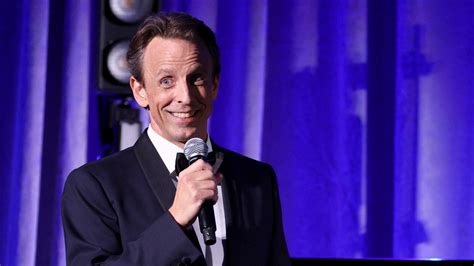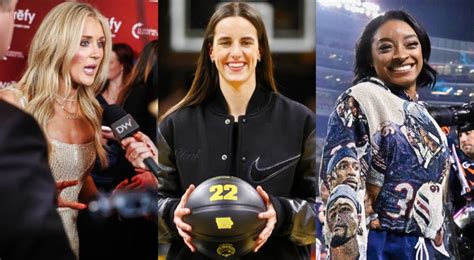
Ben Stiller faced criticism following an appearance on “The Pat McAfee Show,” where he defended his courtside presence at New York Knicks games alongside celebrities like Timothée Chalamet and Spike Lee, prompting a debate about celebrity fandom and access.
Ben Stiller found himself in the crosshairs of sports fans after addressing his courtside appearances at New York Knicks games on “The Pat McAfee Show.” The actor, frequently seen alongside fellow celebrities like Timothée Chalamet and Spike Lee, responded to criticisms regarding celebrity fandom and their perceived privileged access to prime seating. The discussion ignited a broader debate about celebrity culture within the sports world and the reactions of everyday fans.
Stiller’s appearance on the show aimed to address growing discontent among some fans who believe that celebrities receive preferential treatment, particularly when it comes to coveted courtside seats. While Stiller is a well-known and passionate Knicks supporter, his presence, along with other high-profile figures, has become a lightning rod for discussion.
“I am a Knicks fan; I was born into it,” Stiller stated on the show, emphasizing his lifelong dedication to the team. He further explained, “My parents took me to games when I was a kid,” underscoring that his support predates his celebrity status.
The controversy appears to stem from the perception that celebrities, who can afford premium seating, are taking seats away from long-time, devoted fans who may not have the same financial resources. This issue has resonated with a portion of the Knicks fan base, who express their frustrations on social media and sports forums.
“The idea that some people think I just show up to games, it’s just not true,” Stiller asserted, directly countering the criticism that he is merely a fair-weather fan. He highlighted his consistent attendance and genuine enthusiasm for the team, attempting to dispel the notion that his presence is purely for show.
Pat McAfee, known for his candid and often provocative commentary, engaged Stiller in a discussion about the dynamics of celebrity involvement in sports. The segment explored the balance between recognizing famous fans and ensuring that loyal, everyday supporters feel valued. McAfee’s approach allowed Stiller to present his perspective and defend his passion for the Knicks.
The discussion also touched on Spike Lee, a prominent and iconic Knicks fan, who is practically synonymous with the team. Lee, a filmmaker and director, has been a courtside fixture for decades, and his unwavering support is widely recognized. However, even Lee has faced scrutiny at times, highlighting the complex relationship between celebrity fandom and the broader fan base.
“Spike is a legend, and his dedication is unparalleled,” Stiller commented, acknowledging Lee’s long-standing commitment to the Knicks. He pointed out that Lee’s presence is deeply intertwined with the team’s identity and history, further illustrating the spectrum of celebrity involvement in the sport.
The controversy comes at a time when the Knicks are experiencing a resurgence in popularity, making their games even more sought after. This increased demand has amplified the debate surrounding ticket accessibility and the distribution of premium seating.
Stiller’s defense of his fandom reflects a growing awareness among celebrities about their public image and the potential for criticism. In an era of social media scrutiny, public figures are increasingly mindful of how their actions are perceived and are often quick to address controversies head-on.
The debate sparked by Stiller’s comments highlights the evolving nature of sports fandom and the role that celebrities play within it. While their presence can bring attention and excitement to the game, it also raises questions about fairness, access, and the true meaning of being a devoted supporter.
The reaction to Stiller’s appearance was mixed, with some fans supporting his right to enjoy the games and others reiterating their concerns about preferential treatment. The conversation continues to unfold on social media platforms, serving as a reminder of the complex dynamics within the world of sports fandom.
Further, Stiller described his experience as a Knicks fan throughout his life, emphasizing that his support started way back during his childhood. He detailed attending games with his parents when he was young. He explained that his fandom runs deep and is not just a recent development spurred by his celebrity status. Stiller noted that he has been a long-time season ticket holder in the past as well.
Stiller spoke about the need for perspective, indicating he understands some fans’ frustrations but hoped they also saw his life-long and genuine passion for the team.
The conversation around the topic is likely to continue, specifically as the Knicks’ performances rise in popularity. The balance between celebrating celebrity fans while ensuring that everyday fans also feel seen and appreciated remains a critical topic.
The incident also underscores the evolving media landscape where celebrities can directly address concerns and engage in conversations with fans through platforms like “The Pat McAfee Show.” This direct engagement provides an opportunity for celebrities to humanize themselves and provide more context to their actions, attempting to bridge the gap between their privileged status and everyday fan experiences.
Stiller’s interaction has raised questions about authenticity in fandom. Some fans argue that celebrity presence often overshadows the genuine enthusiasm and dedication of regular supporters. Others maintain that celebrities, just like anyone else, have the right to enjoy the game and support their favorite team without facing undue criticism.
The discussion has also extended to the economic aspects of sports fandom. With ticket prices soaring and premium seating becoming increasingly exclusive, the debate centers on whether access to games should be determined solely by financial means or if there should be more equitable ways for long-time supporters to attend.
Stiller’s response has prompted a broader reflection on the value placed on celebrity status in contemporary society and how it intersects with traditional forms of community and belonging, like sports fandom. The debate continues to highlight the tensions between exclusivity and inclusivity within sports culture.
The role of media in shaping perceptions of celebrity fandom is also a significant factor. Shows like “The Pat McAfee Show” provide a platform for these discussions, but also contribute to the amplification of opinions and the potential for further polarization. The media’s coverage of celebrity appearances at games can often sensationalize the issue, fueling the debate even further.
Moving forward, sports teams and organizations may need to consider how they manage the presence of celebrities at games to ensure that all fans feel valued and respected. This could involve initiatives such as designated seating areas for long-time season ticket holders or community outreach programs that provide access to games for underserved populations.
Ultimately, the debate surrounding Ben Stiller’s courtside presence highlights the complex and evolving nature of sports fandom in the 21st century. As the lines between celebrity culture, sports, and social media continue to blur, it is crucial to foster a sense of inclusivity and respect for all fans, regardless of their status or financial means.
The incident also brought into focus the inherent differences between being a fan with significant financial means versus being an average fan. For Stiller, attending games is something he has done since childhood and can easily afford. For many others, attending a single game can be a significant financial sacrifice. This disparity forms the core of the criticism aimed at celebrity attendees.
The conversation surrounding Stiller’s courtside appearances also reflects the broader cultural shift towards questioning established norms and privileges. In an era of increased social awareness and activism, fans are more likely to voice their concerns about perceived inequalities and demand greater accountability from public figures.
The episode serves as a case study in how celebrity engagement with sports can be both a positive and a contentious force. While celebrity presence can generate excitement and media attention, it also carries the risk of alienating segments of the fan base who feel overlooked or undervalued.
Furthermore, the discussion highlights the complexities of defining “true” fandom. Is it measured by years of support, financial investment, emotional dedication, or some combination of factors? These questions remain open for debate and underscore the subjective nature of fandom.
The dynamic between celebrities and sports teams is also an area worth exploring. Teams often benefit from having high-profile fans in attendance, as it can enhance their brand image and attract additional sponsors. However, teams must also be mindful of how their relationships with celebrities might impact their relationships with their core fan base.
Stiller’s experience also raises questions about the boundaries of public criticism. While public figures are often subject to scrutiny, there is a line between legitimate critique and personal attacks. The tone and nature of the online discourse surrounding Stiller’s courtside appearances have, at times, crossed this line, highlighting the challenges of navigating social media in the public eye.
The incident serves as a reminder that fandom is a deeply personal and emotional experience. For many fans, their connection to a sports team is a central part of their identity and sense of community. When they perceive that this connection is being threatened or undermined, they are likely to react strongly.
Looking ahead, it is essential to foster open and respectful dialogue between all stakeholders in the sports ecosystem, including fans, celebrities, teams, and media outlets. By addressing concerns and promoting inclusivity, it is possible to create a more positive and equitable environment for all.
The incident emphasizes the power of social media to amplify voices and shape public opinion. The criticisms leveled against Stiller gained traction through platforms like Twitter and Facebook, demonstrating the ability of ordinary fans to influence the narrative surrounding celebrity engagement with sports.
The debate surrounding Stiller’s courtside presence also underscores the importance of context and perspective. While it is easy to focus on the perceived privileges of celebrities, it is also essential to recognize their genuine passion for the game and their right to enjoy it like anyone else.
The broader issue of ticket pricing and accessibility is a systemic problem that goes beyond celebrity appearances. Many fans are priced out of attending games, regardless of whether celebrities are present or not. Addressing this issue will require comprehensive solutions that address the underlying economic factors driving up ticket costs.
The episode involving Stiller and McAfee provides a valuable lesson in the importance of empathy and understanding. It is crucial to acknowledge the perspectives of all parties involved, even when they differ significantly. By fostering empathy, it is possible to bridge divides and create a more inclusive and welcoming environment for all fans.
The discussion also highlights the evolving nature of the relationship between celebrities and their fans. In the past, celebrities were often seen as distant and inaccessible figures. However, with the rise of social media, they are now more connected to their fans than ever before. This increased connectivity can be both a blessing and a curse, as it allows for greater interaction but also exposes celebrities to greater scrutiny.
The incident serves as a reminder that celebrity status does not shield individuals from criticism or accountability. Public figures are expected to be mindful of their actions and the potential impact they may have on others. While they are entitled to enjoy their lives, they must also be aware of the responsibilities that come with their privileged position.
The ongoing discussion surrounding Stiller’s courtside appearances underscores the importance of fostering a sense of community within sports fandom. When fans feel connected to one another and to their team, they are more likely to be supportive and understanding, even when faced with differing perspectives.
The incident highlights the need for greater transparency and accountability in the distribution of premium seating at sporting events. Teams and organizations should be transparent about how these seats are allocated and ensure that long-time season ticket holders and other deserving fans are given opportunities to enjoy them.
The debate surrounding Stiller’s courtside presence also raises questions about the role of wealth and privilege in shaping access to cultural experiences. In a society where economic inequality is on the rise, it is essential to consider how these disparities impact access to sports, arts, and other forms of cultural expression.
The incident serves as a reminder that fandom is a complex and multifaceted phenomenon that encompasses a wide range of emotions, motivations, and experiences. There is no single “right” way to be a fan, and all forms of fandom should be respected, as long as they do not infringe on the rights or well-being of others.
The ongoing discussion surrounding Stiller’s courtside appearances provides an opportunity for reflection and growth within the sports community. By addressing the underlying issues and fostering a more inclusive and equitable environment, it is possible to create a more positive and rewarding experience for all fans.
The incident serves as a case study in the challenges of navigating the intersection of celebrity culture, sports, and social media. As these forces continue to converge, it is essential to develop strategies for managing the potential conflicts and promoting a more harmonious and inclusive environment for all.
FAQ Section:
Q1: What was the main criticism Ben Stiller faced regarding his appearances at New York Knicks games?
A: The primary criticism revolved around the perception that Stiller, along with other celebrities, receives preferential treatment regarding courtside seating at Knicks games, potentially taking seats away from long-time, devoted fans who may not have the same financial resources. As he stated, “The idea that some people think I just show up to games, it’s just not true.”
Q2: How did Ben Stiller respond to the criticism about his courtside appearances?
A: Stiller defended his presence by emphasizing his lifelong dedication to the Knicks, stating he was “born into it” and that his parents took him to games when he was a child. He also refuted the notion that he simply “shows up” and highlighted his genuine enthusiasm for the team.
Q3: What role did “The Pat McAfee Show” play in this controversy?
A: “The Pat McAfee Show” provided a platform for Stiller to address the criticisms directly. Pat McAfee engaged Stiller in a discussion about celebrity involvement in sports, allowing Stiller to present his perspective and defend his passion for the Knicks.
Q4: How does the presence of celebrities like Spike Lee factor into the discussion about Knicks fandom?
A: Spike Lee, a long-time and iconic Knicks fan, is often mentioned in the context of celebrity fandom. Stiller acknowledged Lee’s “unparalleled dedication” and noted that Lee’s presence is deeply intertwined with the team’s history. Even Lee has faced scrutiny at times, highlighting the complex relationship between celebrity fandom and the broader fan base.
Q5: What broader issues does this controversy highlight about sports fandom and celebrity culture?
A: The controversy highlights several broader issues, including the economic aspects of sports fandom (ticket prices and premium seating), the definition of “true” fandom (years of support vs. financial investment), and the evolving nature of the relationship between celebrities and their fans in the age of social media. It also raises questions about fairness, access, and the balance between celebrating celebrity fans while ensuring that everyday fans also feel valued and respected.









